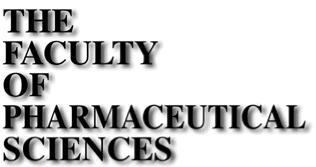 |
 |
The Theme for the 21st Century Is Good Health for Human Beings and an Environmental Protection of the Earth
We human beings are striving toward the as yet undefined era of the 21st century. Attention has been focused more and more on the environment and health, the
two cornerstones of human happiness. The scholastic achievements of those who have come before us and their efforts to bring new pharmaceutical products to market have resulted in the development of new
treatments for ailments previously considered incurable, and the elimination of many diseases. However, it is undeniable that there is still much work to be done against stroke, cancer, senile dementia and
AIDS, for example. Another issue that must be dealt with is environmental degradation by modern industry.
We are entering an age in which pharmacy is becoming more than just an aid in the treatment of disease. We must not forget that this is a science of life
and the environment, aiming to preserve mental and physical health through prevention of disease and environmental protection.
A Unique Type of Training in Pharmacy
With a goal of “health for tomorrow,” the Faculty of Pharmaceutical Sciences aims to produce professionals in the pharmaceutical field who will
have the skills demanded by tomorrow's society, with its higher proportion of elderly persons, greater degree of internationalization and sophisticated information technology.
Widely-ranging education and research in the life sciences using the most up-to-date equipment, including computers, and techniques such as biotechnology,
provide students with specialist training in technology and information related to the pharmaceutical field. The unique training provided by the Faculty of Pharmaceutical Sciences is based on the idea of
training those warm-hearted individuals who wish to participate in health care and have human empathy for the patient, and we hope to train as many such individuals as possible. This program has produced
impressive results.
Persons who complete the program and graduate with a Bachelor of Science degree in Pharmacy receive qualification to take the national board examination
for registered pharmacists. Among the 46 such institutions in the country, the Faculty of Pharmaceutical Sciences of Kobe Gakuin University is consistently among the top ranking schools in terms of number of
students passing the national examination. Many graduates are actively engaged in the health care field as pharmacist. Others pursue careers as pharmacist in the pharmaceutical industry, in the public service
sector, at research institutes, and the like.
The Core System and Course Structure Provide Balanced Training in Pharmacy
The Faculty of Pharmaceutical Sciences is comprised of the Department of Pharmacy and the Department of Biopharmacy. Through the third year, students study a common core curriculum covering the basic knowledge essential to all pharmacists. In their fourth year they choose to enter one of the above departments and commence their specialization in pharmaceutical education.
Information-Based Education with an International Emphasis
An information-based approach to education is essential taking into consideration the fact that modern science and technology are often comprised of the most
up-to-date data. To make this a reality, computers are incorporated into the students' course of study beginning in the second year. Educational tools such as the CAI System allow students to obtain a firm
background in basic scholastic skills and give them the tools they will need to identify and solve problems on their own in the future.
Even after graduation, graduates can remain in touch with the university through the Internet. Computers are also used for post-graduate education so that
they can obtain the latest information on the pharmaceutical field, both from Japan and overseas, as well as news about administrative trends. Also, as part of our efforts to train professionals with the global
awareness required in today's rapidly internationalizing society, a research tour of the United States, which is a leader in clinical pharmacy, is offered by the school. This provides students with a valuable
opportunity to observe internationally-recognized pharmacy and develop a true international sense of the state of pharmacy.
Department of Pharmacy
The Department of pharmacy consists of six research units: Medicinal Chemistry, Pharmacognosy and Pharmaceutical Chemistry on Natural Products, Pharmaceutical Chemistry, Pharmacy Administration/Drug Information, Pharmaceutical Analysis, and Pharmaceutics. Primarily intended to train individuals to become specialists in drug therapy who will work in pharmaceutical industries or with physicians, this department focuses on pharmaceutics, the chemistry of drugs and their management. A scientific background in organic chemistry and physical chemistry is emphasized.
Department of Biopharmacy
The Department of Biopharmacy consists of four research units: Physiological Chemistry, Biochemistry, Hygienic Chemistry/Toxicology and Pharmacology. This department is designed for individuals who want to obtain a Bachelor of Science degree in pharmacy, and who will be involved in professional fields such as pharmaceutical research and development, pharmacological and biological testing, environmental/public hygiene, and bio-engineering applications. A basic knowledge in biochemistry and physiology is emphasized in order to enable students to learn the principles of drug development and the theory of the public hygiene field through the mechanisms of drug action on the body